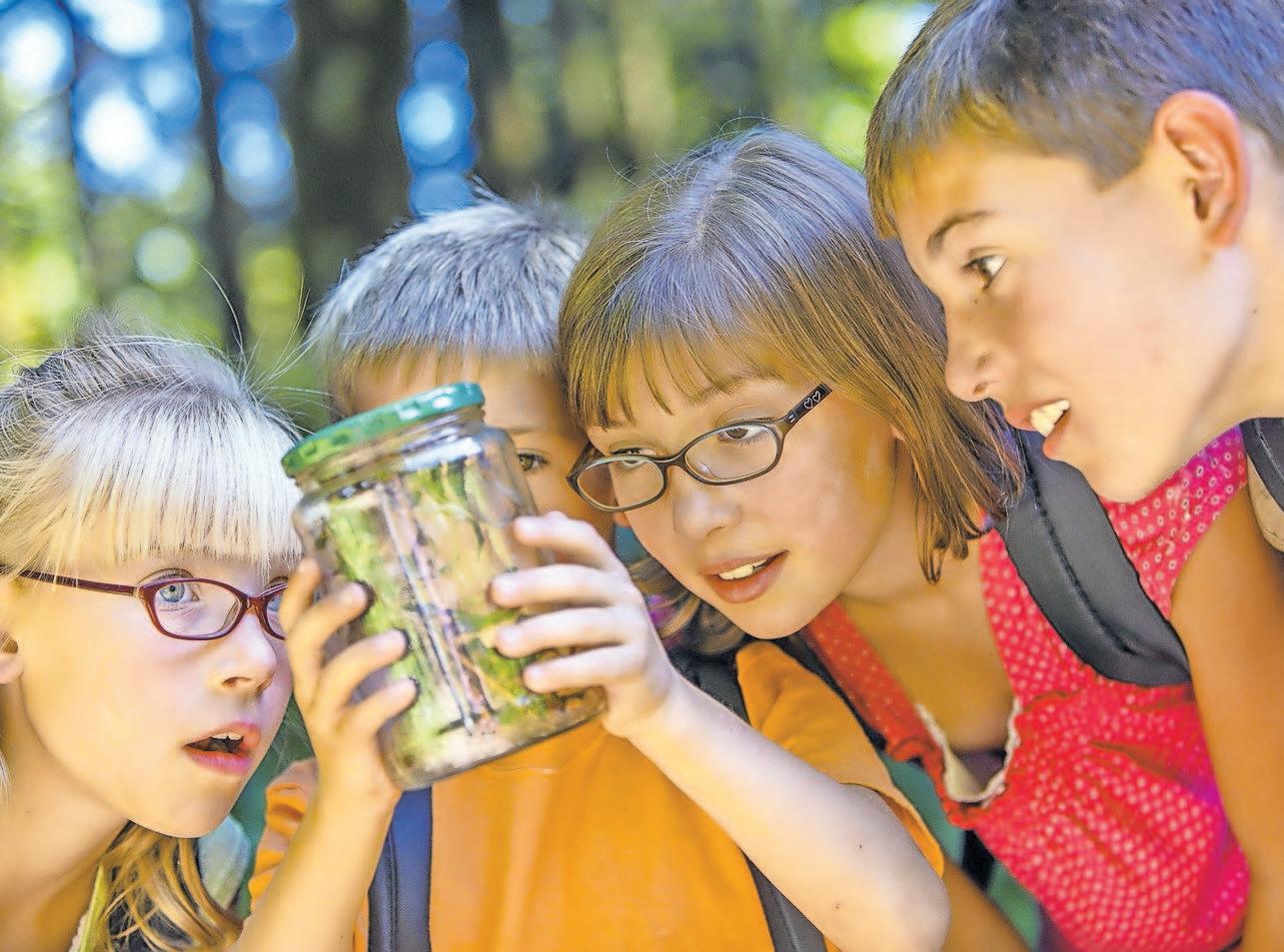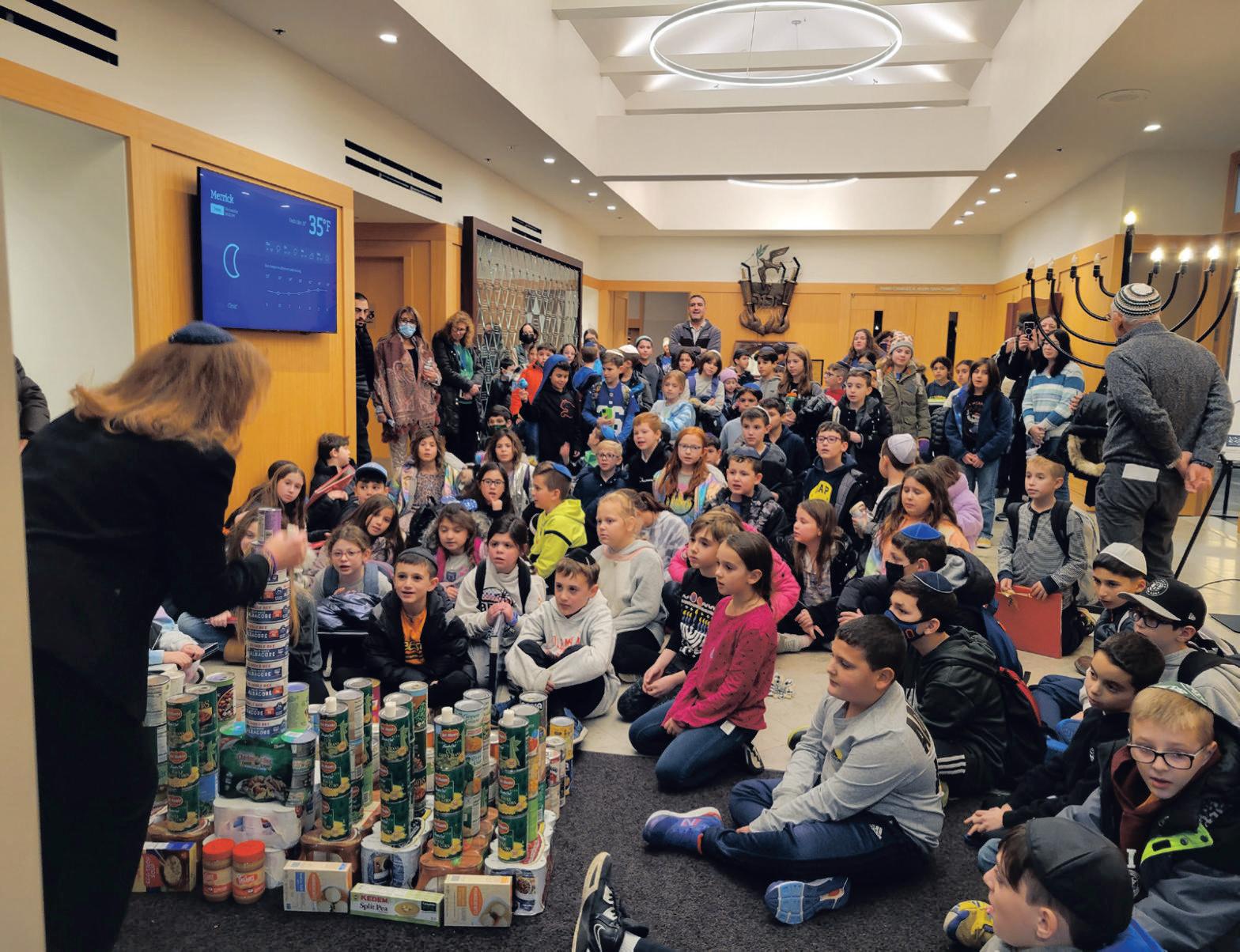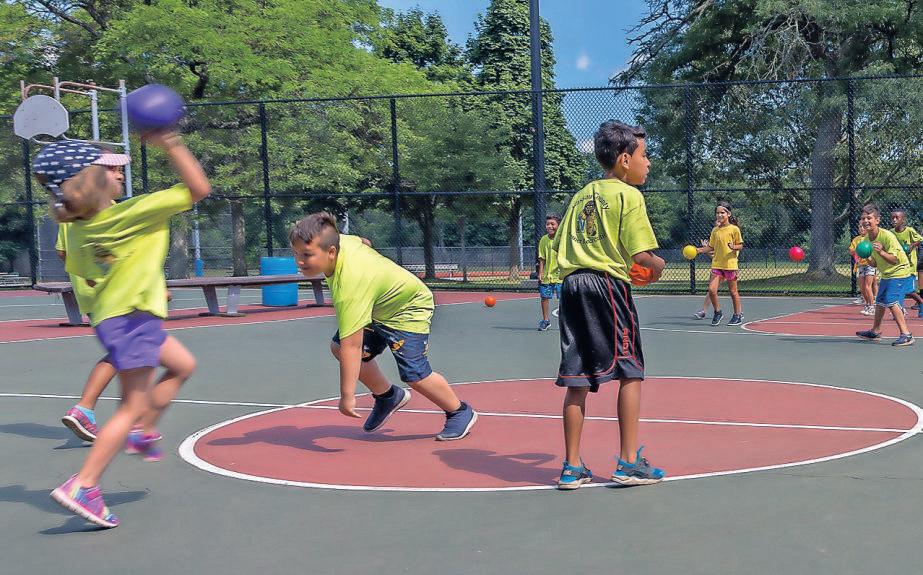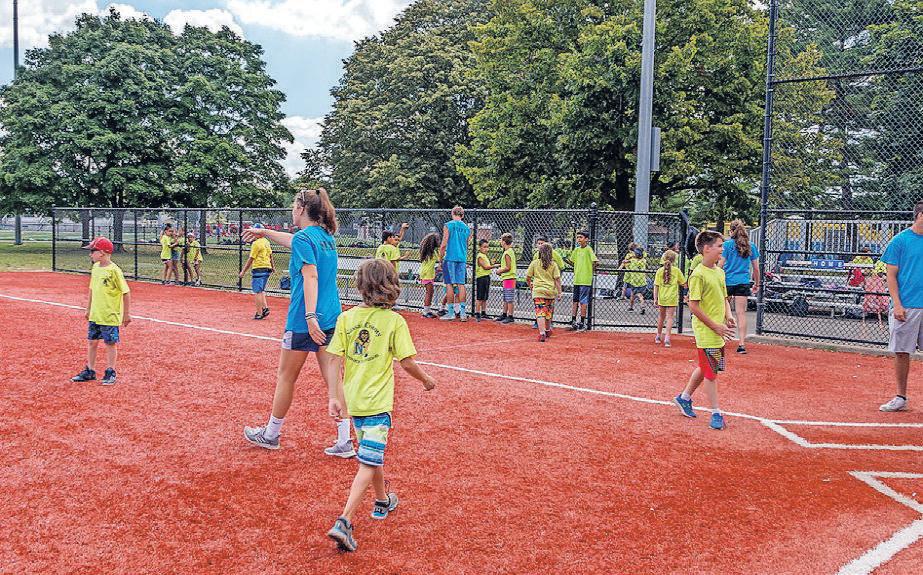
6 minute read
Deciding among the options
Although we are still a while off from the warm weather, it’s never too early to being thinking about summer camp. Since the most popular camps typically fill their rosters long before the first signs of spring, the earlier you begin the process, the more options your family will have available.
When choosing a camp or summer program, reputation and word of mouth are meaningful resources; however, a terrific match for one child and family might not be the best match for your child or family. The best advice is to think about your child’s interests and temperament, and make a list of camp features that are most important to your family and child.



Staff: The staff will play a crucial role in how much your child enjoys himself over the summer. A qualified staff is adept at making all children feel welcome, and will be experienced in making everyone’s time at camp as enjoyable as possible.




When connecting with camps, ask about staff and how the staff is assembled. What education and training is required of the staff? Does the camp run criminal background checks on its staff? A good staff will be trained in first aid and have some type of background in child counseling or education. Camps that simply hire recommends that 80 percent of a camp’s staff should be 18 or older.


Camp goals: Camps can differ greatly with what they hope to offer a child. Camps can focus on religion, sports, music, recreation, or a host of other interests. If you’re looking for a sports camp, ask about affiliations with any local colleges or professional teams. If it’s a musical camp, ask about what your child can expect to learn from staff.
It’s also important to determine the general temperament of a camp. Does the camp foster a laid back or more competitive environment? This can be a big help in choosing the right camp for your child. For example, a child who isn’t very competitive likely will not enjoy a camp where competition is heavily emphasized, whereas a child who is competitive might not get much out of a camp that is more recreational.
Daily schedule: While some camps might be specialized, most parents send their children to recreational camps that they hope offer their kids a well-rounded experience. Ask to see the schedule from a typical day, and ask about how flexible that schedule is. Will kids be able to choose from different activities each day, or is every day regimented? Remember, kids will be spending their summer vacations at camp, and for many kids camp is an opportunity to relax and spend some time doing what they want. Camps that feature strict schedules might not be the best fit.
Referrals: Chances are some of your child’s classmates attend camp in the summer. Ask around and seek some advice on what are the top options. If you’re lucky, you might even be able to send your child to a summer camp that some of his classmates also attend, which should make it easier for your child to adapt to camp, especially if it’s a first summer away from home.


If you can’t find any personal referrals, ask a camp for a list of references. These references shouldn’t weight too heavily in your decision, as a camp director is obviously not going to give you names of parents whose children didn’t have a good time. But the parents should be able to provide an accurate portrayal of how the camp conducts itself and how your child might fare should he attend that camp.

Photo: It’s much more than s’mores and sing-alongs: Camps can provide lifelong memories and skills.

For many families, the morning rush isn’t the most chaotic time of the day. Instead, the sanity-buster is that long stretch from the time school lets out until the final activity ends and everyone is home.

Surviving the afternoon activities juggle is all about planning and time management and it’s also an opportune time to teach kids some valuable skills.
“The opportunity with activities is it’s a great time for kids to learn time management,” says Carolyn Dalgliesh, a professional organizer who specializes in helping kids who are anxious or distracted. “It’s a skill that will help them throughout their lives.”
Without preparation, the activities crunch can get kids and parents on a quick path to burnout and exhaustion.
Consider these tips from the experts for making your child’s after-school activities a fun and rewarding part of childhood and for teaching your child the skill of time management.
Choose the right activities. There is no need for everyone to run ragged getting to volleyball practice if your child no longer enjoys it. “We talk about mindful choices,” Dalgliesh says. “You want your child to get value out of any activity, whether it’s a great social outlet or a chance to run off a lot of energy.”
Consider timing. If you’re lucky enough to have choices in times, choose wisely. “Think about how well your child does with transi- tions,” Dalgliesh says. “For some kids, coming home triggers wind-down time, [so] parents may want to go to the library after school to do homework instead of stopping by the house.”
Honor the family meeting. There is a central principle when it comes to family time management: Everyone must get together once a week, with calendars in hand, to plan out the next week. Figure out how each kid will get to and from each activity, and make plans for meals and snacks. When doing the planning, try to carve out at least one night when the family can have dinner together. Make your weekly meeting fun by following it with a family movie or game night. Or, suggests Grey, dole out allowance and lunch money at the end of the meeting.
Maintain a family calendar. Each family member needs his or her own week-at-a-glance calendar, and you also need a family calendar. Yes, that’s a lot of calendars, but it will help ensure all activities are well-planned.

Get the activity bags ready. Get your kids in the habit of packing their activity bags on Sunday night. Designate a place for them to hang or store their bags. For activities requiring a lot of gear, use a checklist to make sure nothing gets left behind.
Embrace meal planning. It’s important to plan simple, consistent meals, especially if you’re a busy family with a lot of activities. For example, kids love theme dinners such as “Taco Tuesday,” and can help with preparation and assembly. Also plan snacks, making sure to have high-protein nibbles available for kids before they embark on a strenuous activity. Make it portable. Keep healthy drinks and snacks in a car cooler. After all, “we’re a portable society,” Dalgliesh says. In addition to food, keep an “activities bin” for kids to rummage through while hanging out at big brother’s karate practice but only then. “Those activities are special, and they only get pulled out when kids are waiting,” Dalgliesh explains.
Make car time special. If you spend a lot of time driving to and from activities, make that time count. Try an audiobook, choosing a story everyone in the family can enjoy. Dalgliesh plays a conversation game with her children. She has a set of cards with prompts such as, “What is the worst meal you ever had in a restaurant?” or “What is your favorite vacation memory?” She passes the deck to her kids has them pick one. “It’s about finding those moments to connect,” she says.
Have a picnic. If you have to race from your daughter’s after-school soccer practice to your son’s evening hockey game, pack a cooler and enjoy a picnic supper in the bleachers, at a park, or anywhere else you can find.
Be flexible. Even the most carefully made plans can be rendered useless by a thunderstorm that cancels soccer practice, a sick child, or an unexpected work disaster.
Empower your kids. Give your kids as much control over their own planning and scheduling as they can handle. Different kids need different tools. Especially as kids get older, they need to own their organization system. Some kids like to do everything electronically, others like pretty paper notebooks and calendars. Some kids like to use the latest apps and color-coded pens to stay organized, and others take a minimalist approach, scribbling basic information only.
Electronics and computers. Our devices became our lifelines during the pandemic , and for many it’s a hard habit to break. It’s easy to rely on electronic games and social media during the activities crunch, especially for siblings who are waiting or when you arrive at an activity early. But set limits and use electronic toys as a reward for good behavior, with exceptions to those limits when the tech tool is needed for a school project.
By teaching your kids the skills they need to manage their life inside and outside of school, you’ll equip them for grade school, college, and beyond. You’ll also create a family life that allows all members the opportunity to reach their potential.
Photo: Keeping kids busy after school is a good thing, but participating in many activities without advance planning is inviting miscommunication, forgotten homework, and cranky families. Instead, enlist your kids’ efforts each week in planning their time.


















